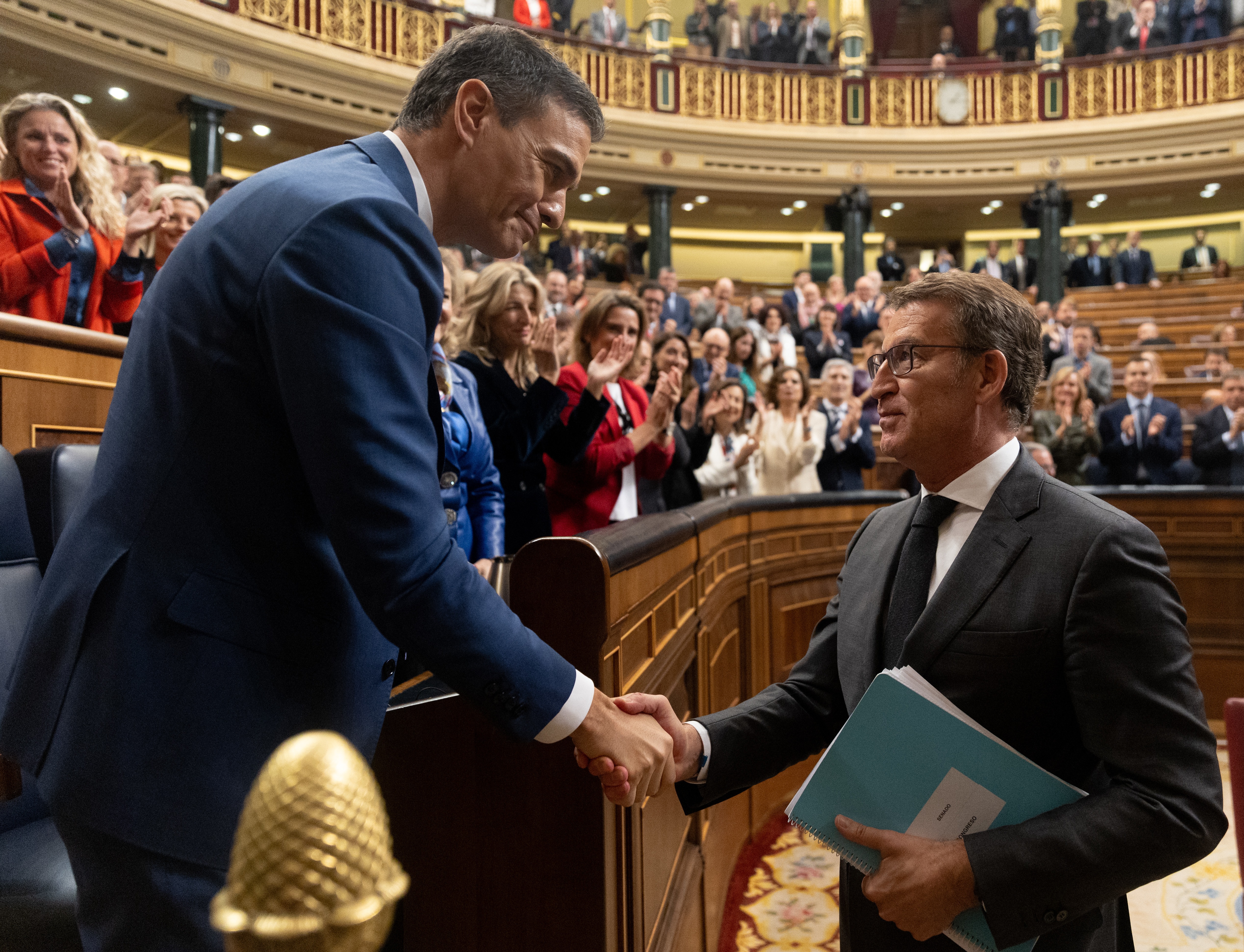The international press has put a spotlight on the role played by the Catalan independence movement in this Thursday's investiture of Pedro Sánchez as head of a new Spanish government. Media from all over Europe and North America stressed the importance of the two pro-independence parties, ERC and Junts, and the Catalan amnesty law, in the re-election of the Spanish prime minister, after MPs gave the Socialist (PSOE) leader an absolute majority in parliament with 179 votes, greater backing than he obtained in the year 2020.
"A controversial decision", in the UK
One of the leading newspapers in the UK, The Guardian, highlighted that Pedro Sánchez has won his "second term as Spain's PM" following a "Catalan amnesty deal". The most interesting aspect is in the sub-heading, where the British daily considers that the vote in the Congress of Deputies came "after a controversial decision to secure the support of the Catalan separatists". "The victory has come at a high price and has depended on the backing of smaller regional parties, including Catalan and Basque nationalists," it adds in the body of the article. The Guardian has given heavy coverage to street protests and other opposition to the amnesty deal in recent weeks, but, at the same time, the paper has stated its editorial support for the agreement.
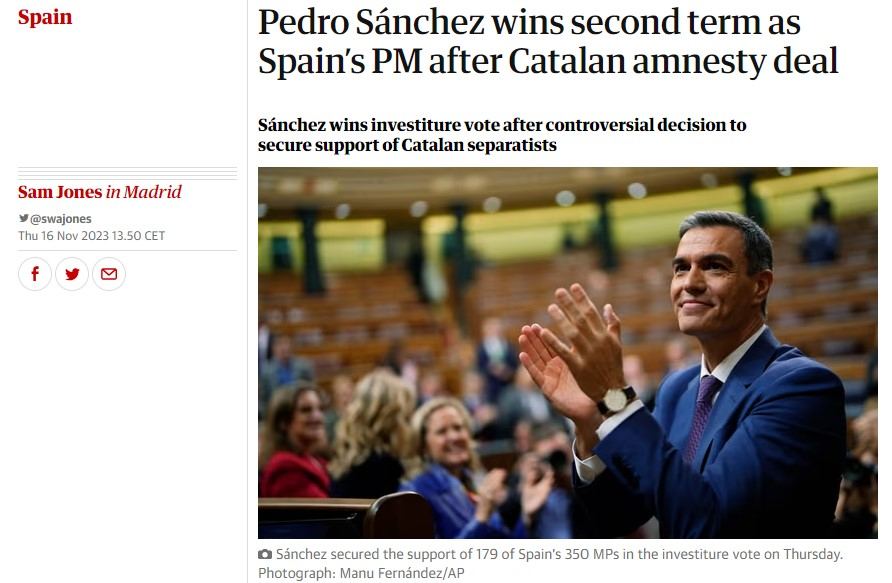
"Thanks to Puigdemont", in France
The leading French newspaper, Le Monde, expressed itself along the same lines as The Guardian, remarking that Sánchez has been "re-elected for another term after a controversial accord with the Catalan independentists". In the sub-heading, the French daily recognizes that the investiture was able to go ahead "thanks in particular to the crucial support of the party led by pro-independence Carles Puigdemont, in exchange for an amnesty measure that deeply divides the country". "Sánchez had to convince the party of Puigdemont, leader of the attempted secession of Catalonia in 2017, who fled to Belgium six years ago to escape the judicial proceedings initiated against him. Agreeing to support Sánchez, Puigdemont obtained the imminent adoption of an amnesty law for hundreds of independence supporters pursued by the courts. A measure that will allow him to return to Spain", added the Le Monde story.
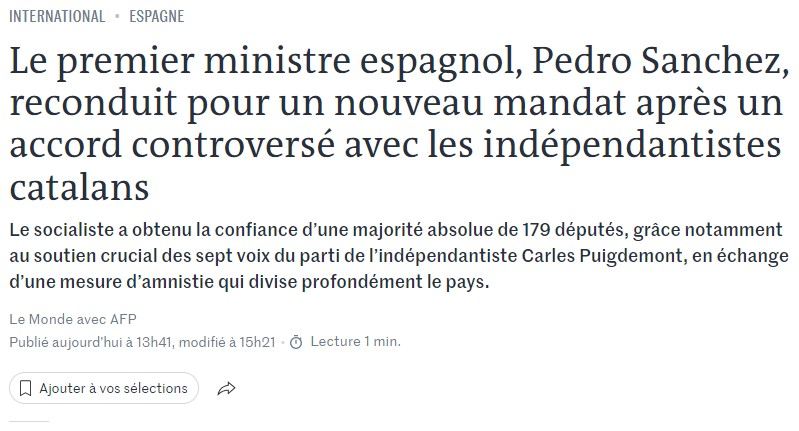
"Pro-independence support", in Italy
"Sánchez, elected president by an absolute majority", highlighted La Repubblica, the most widely read newspaper in Italy. Once again, the most interesting aspect is in the sub-heading: "The Socialist leader, after giving the green light to the amnesty law, obtained the support of all Catalan and Basque nationalist and independentist forces". From there, the Italian medium takes few risks and does not offer much more analysis.
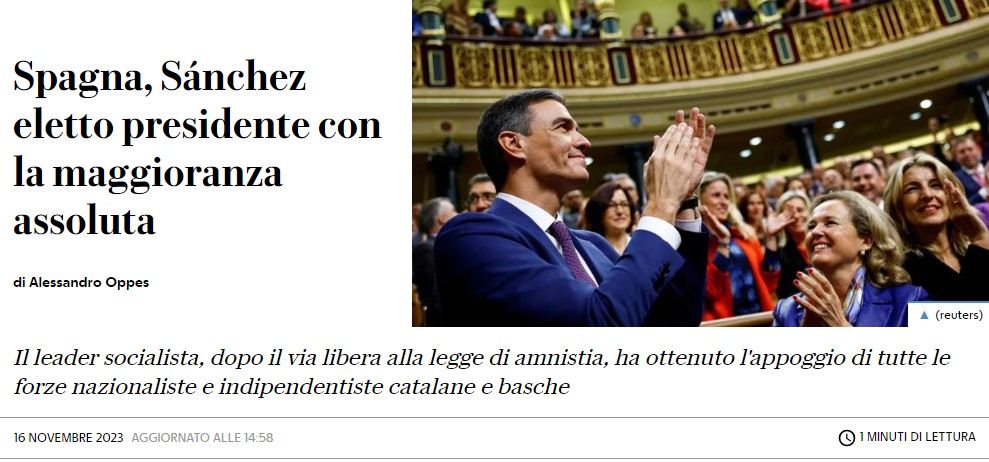
"The problems are becoming evident," in Germany
One of the most widely read newspapers in Germany, Süddeutsche Zeitung, reported that Sánchez has been "re-elected as head of the Spanish government". "The Socialist only came second in the parliamentary election, but thanks to six smaller parties he can remain as prime minister," it added in the caption. The matter does not end there, as the Munich-based daily ventured to say that "the problems of this coalition are already becoming evident", and in the text, it explains that "the vote was preceded by a day and a half of sometimes aggressive and controversial debate, during which Sánchez's political opponents attacked him especially over the pact with the two separatist parties of Catalonia". "To secure his parliamentary votes, Sánchez negotiated an amnesty law for the perpetrators of the illegal secession attempt in October 2017, among others, with former Catalan president Carles Puigdemont," it said. And now what? Well, says Süddeutsche, "he now faces tough opposition, not only in parliament, but also on the streets".
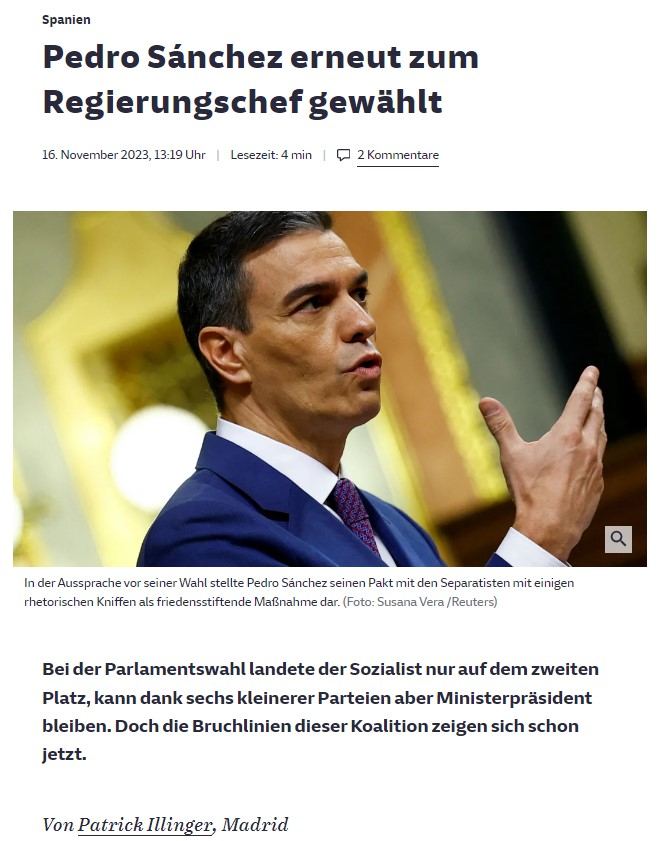
"The power of Junts", in the European Union
The pan-European media Politico headlined that "Spain's parliament confirms Pedro Sánchez as prime minister", adding that "the Socialist leader will form a minority administration with the far-left Sumar coalition". In the text, it highlights that "all seven lawmakers belonging to the Catalan separatist Junts party, which had the power to either make Sánchez prime minister or force Spain to hold new elections, voted in his favour. "
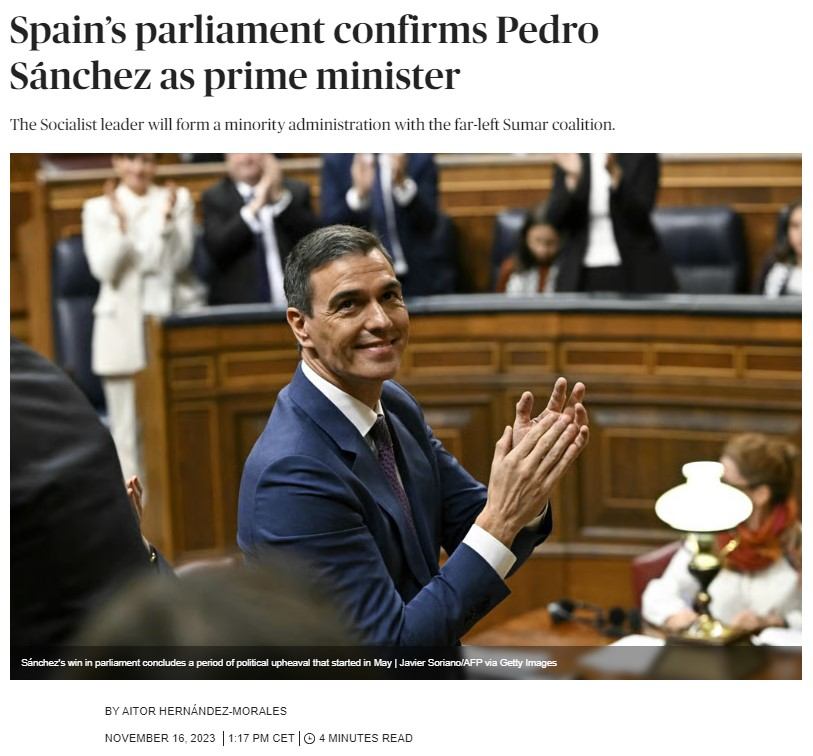
"Controversy over mass amnesty," in the US
In the United States, mainstream media have not given much importance to Sánchez's new term. Of the leading newspapers, it was the Los Angeles Times that broke the news that Sánchez had been "re-elected as Spanish prime minister despite controversy over the mass amnesty". "The vote came after nearly two days of debate among party leaders that focused almost exclusively on a highly controversial amnesty deal for Catalonia's separatists that Sánchez agreed to in return for vital support for be elected as prime minister again", it added in the body of the news story.
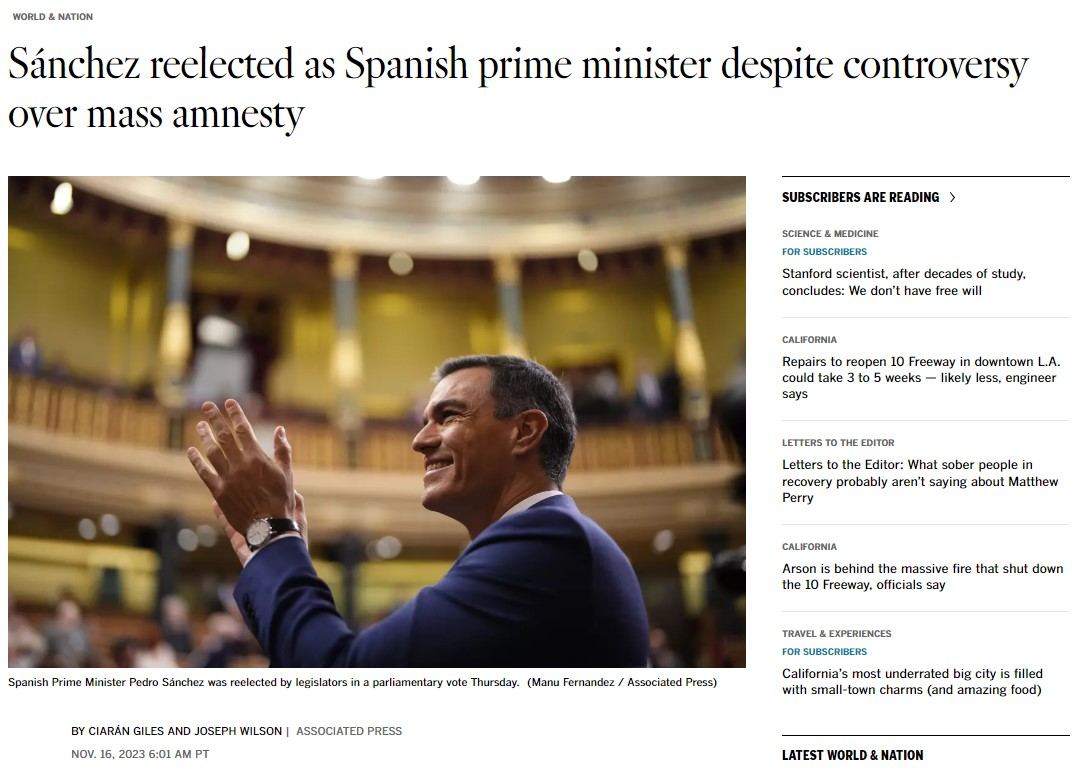
.

